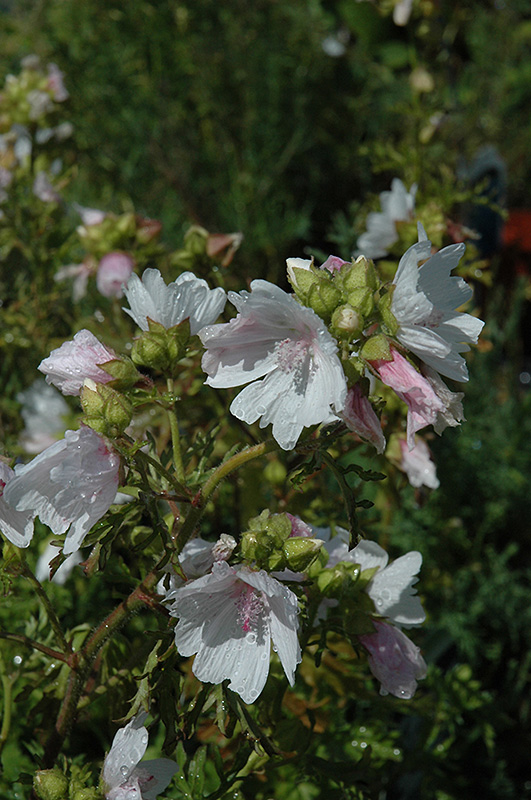The Plant Finder
Have a specific vision in mind for your outdoor space?
Search our database and find the perfect plants to meet your gardening needs.
Height: 3 feet
Spread: 24 inches
Sunlight:
![]()
Hardiness Zone: 4a
Other Names: Musk Mallow
Description:
A succession of pristine white blooms cover this rare plant from midsummer on; lovely finely cut foliage and looks great in the garden where it will self sow freely; tends to like drier soil
Ornamental Features
White Mallow has masses of beautiful white round flowers with shell pink streaks at the ends of the stems from mid summer to early fall, which are most effective when planted in groupings. Its deeply cut lobed leaves remain green in colour throughout the season.
Landscape Attributes
White Mallow is an herbaceous perennial with a mounded form. Its relatively fine texture sets it apart from other garden plants with less refined foliage.
This is a high maintenance plant that will require regular care and upkeep, and should be cut back in late fall in preparation for winter. It is a good choice for attracting butterflies and hummingbirds to your yard. Gardeners should be aware of the following characteristic(s) that may warrant special consideration;
- Self-Seeding
White Mallow is recommended for the following landscape applications;
- Mass Planting
- General Garden Use
Planting & Growing
White Mallow will grow to be about 3 feet tall at maturity, with a spread of 24 inches. It grows at a fast rate, and under ideal conditions can be expected to live for approximately 3 years. As an herbaceous perennial, this plant will usually die back to the crown each winter, and will regrow from the base each spring. Be careful not to disturb the crown in late winter when it may not be readily seen!
This plant should only be grown in full sunlight. It prefers dry to average moisture levels with very well-drained soil, and will often die in standing water. It is not particular as to soil type or pH. It is highly tolerant of urban pollution and will even thrive in inner city environments. Consider applying a thick mulch around the root zone in winter to protect it in exposed locations or colder microclimates. This is a selected variety of a species not originally from North America.

